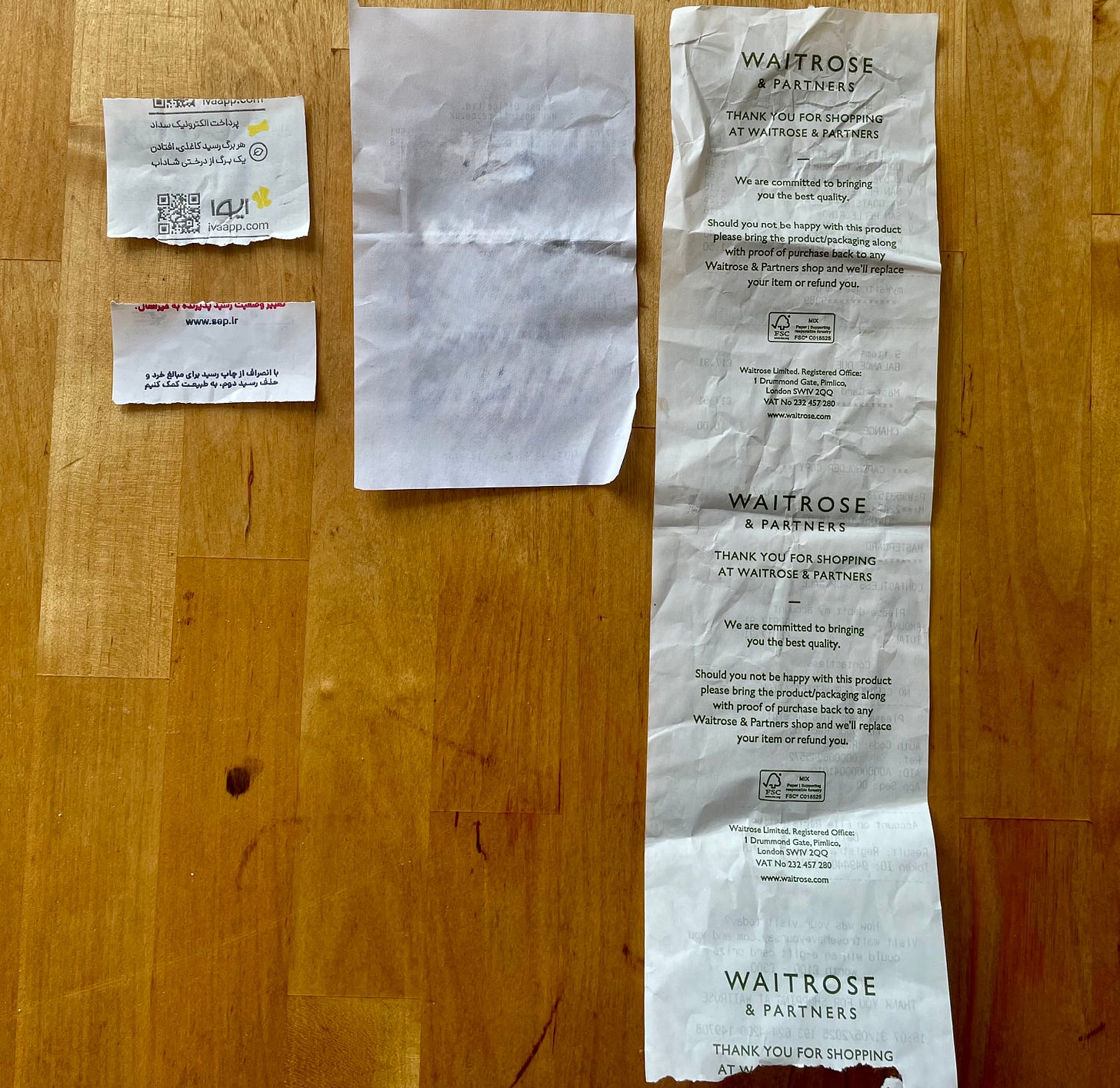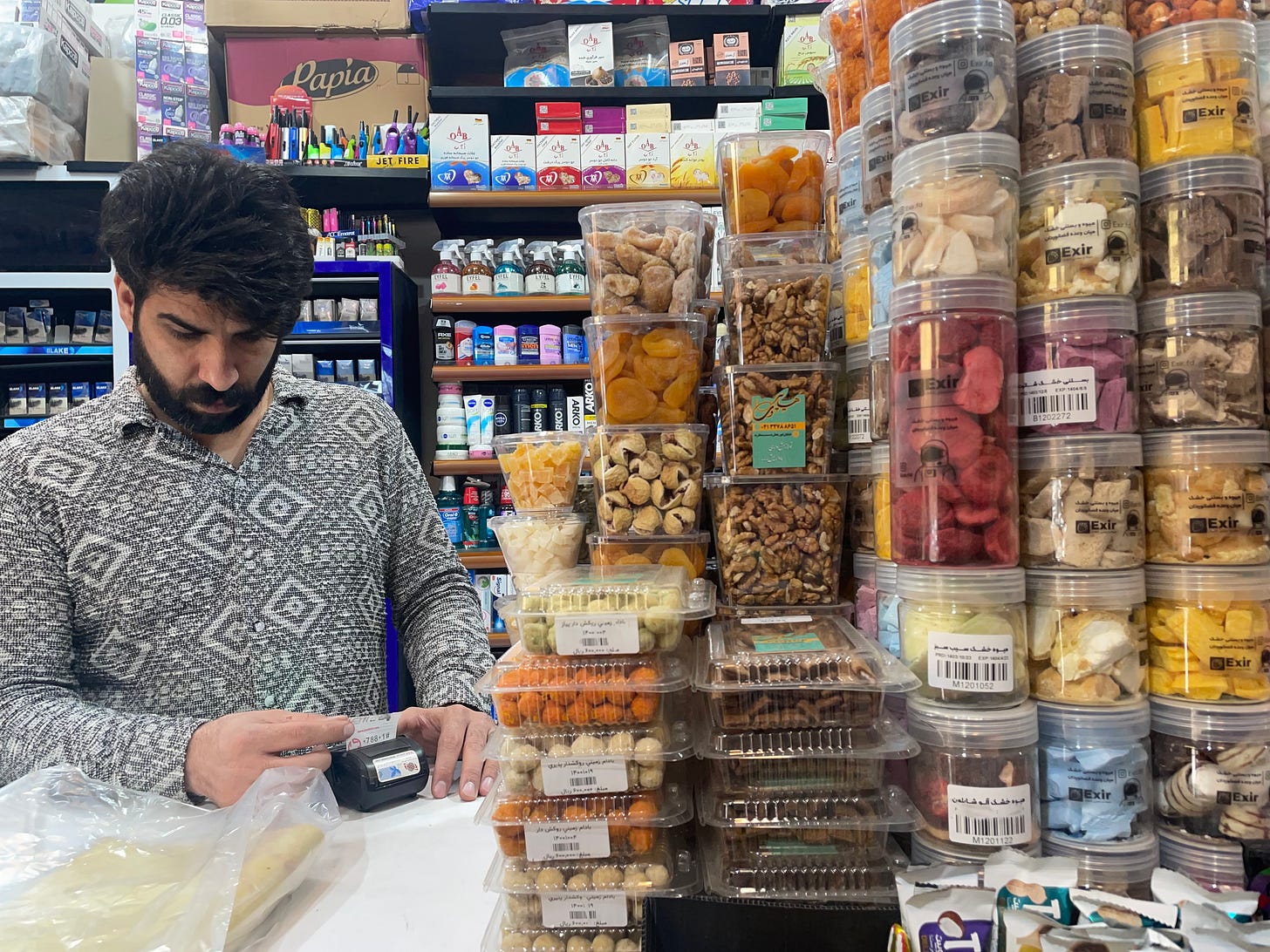
1
The difference in the size of receipts in Iran and here. It might have to do with the kind of machines they use for processing payments, or maybe a lack of paper, but most, though not all, shops offer these tiny receipts as proof of purchase. If you need an itemised bill, they can print that separately.
Compare that to the ones I get here. I’m not picking on Waitrose, but theirs is the longest!
I’d love to know what size receipts are like in your country and whether, like here in the UK, you're given the option of receiving a paper copy or an electronic version.
2
In Iran, people freely give out their PIN to anyone who asks. If you're at an ATM and struggling to see or getting stuck, the next person in the queue will “help” (read: get impatient with your ineptitude), come over, cancel whatever you were doing, put your card in the machine, ask for your PIN, complete the transaction for you, wait for the card to come out, and only then get on with their own business.
Similarly, in a shop or at a street stall, no matter how crowded, you hand your card to the vendor, they swipe it (remember those days?), then ask for your PIN. If they're hard of hearing, you might even need to shout it out. They make the payment, hand back your card, and give you the little receipt like the one in the photo above. If you've opted in, you’ll also get a text message on your phone confirming the transaction.
I slip straight into this groove when I get there and revert when I’m in the UK by checking over my shoulder at the ATM!
On several shopping trips to our local shops, when I used my mother’s card to pay for groceries, the shopkeepers - who know us - didn’t even bother to ask me for the PIN. They memorise most customers’ numbers and even knew which PIN belonged to which card. Good job too as I’d forgotten on one occasion.
Where else do people share their PIN so freely?
I haven’t heard of a single case where money has been stolen from someone's account (touch wood as I write this).
Here, we don’t really use PINs anymore, we use Face ID or fingerprint to unlock payment apps on our phones. They haven’t adopted phone payments yet, but I wonder how that will go when they do.
So what’s with all the secrecy here? Are we less trusting of each other? Of shopkeepers? Of people around us? Are we just more careful, or more paranoid about our money? Do we think everyone is out to pick our pockets and drain our accounts? Is this difference cultural, societal, or something we've learned over time?
What do you think?





I wonder what this says about the wider cultural differences in trust and how we interact with strangers? Absolutely fascinating post, thank you!